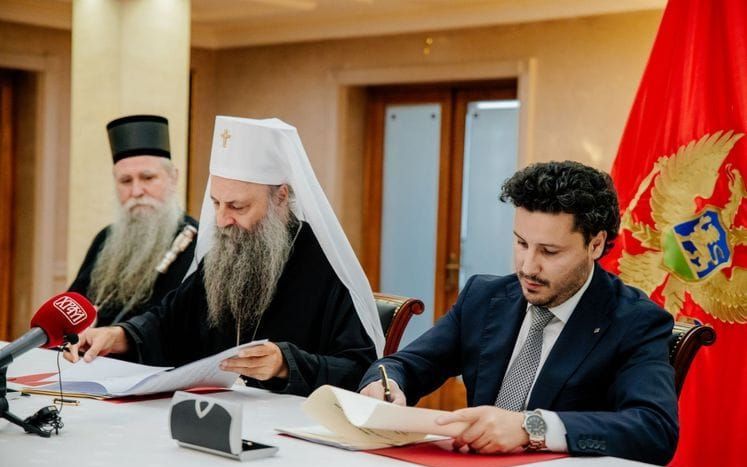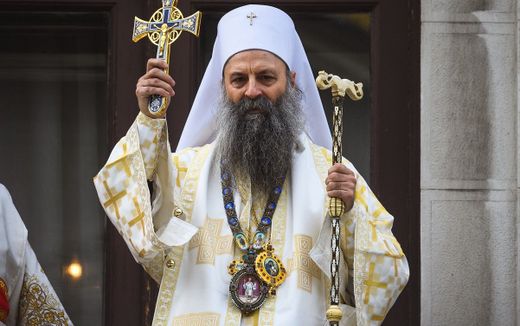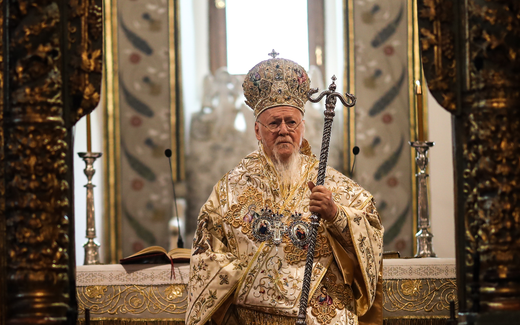Montenegrin government faces no-confidence vote over church deal

Prime Minister Dritan Abazović (r.) and Patriarch of the Serbian Orthodox Church Porfirije (m.) signing the Agreement. Photo Government of Montenegro
Southern Europe
Several political parties in Montenegro initiated a parliamentary no-confidence vote on the government after it signed a disputed ‘fundamental agreement’ regulating the country’s ties with the Serbian Orthodox Church on Wednesday.
The deal regulates relations between the Serbian Orthodox Church (SPC), the largest church in Montenegro, including its real estate ownership rights, and the state of Montenegro. According to the agreement, the Serbian Church does not need government permission to relocate cultural heritage it owns but must obey the Law of Cultural Heritage Protection.
Furthermore, the Montenegrin government is obliged to register all Orthodox churches and monasteries belonging to the Serbian Orthodox Church and start the restitution process of Church property nationalised or confiscated by Communist authorities after World War Two.
According to the agreement, the state cannot permit building Orthodox churches without the approval of the SPC, while Orthodox religious education may be regulated in public schools.
Prime Minister Dritan Abazovic has insisted the deal would resolve a long-standing domestic problem and help heal deep divisions between pro-European Union parties and backers of closer relations with Serbia and Russia. This reports press agency Reuters.
Patriarch Porfirije of the Serbian Orthodox Church said that Montenegro and the Church both needed the agreement, stressing it was following the Montenegrin constitution.
Human rights
The deal has been criticised by human rights activists and pro-Western political parties who said it gave the church too much power compared to other religious communities. However, earlier, similar agreements were signed with smaller religious communities. This reports the news portal Balkan Insight. In 2011, Montenegro signed an agreement with the Catholic Church and in 2012, a deal was reached with the Islamic and Jewish communities. Until now, there was no such deal with the Serbian Orthodox Church.
“I am sorry that this (deal) has not been realised earlier, but this government is determined to grant identical rights to all religious communities”, PM Abazovic said after the signing ceremony. “I believe that in this way, the message of peace and tolerance has been sent and that we are turning a new leaf.”
However, Abazovic’s coalition partners, notably the pro-Western DPS of President Milo Djukanovic, disagreed with him and initiated a no-confidence vote. This vote will take place on August 19th and needs the approval of a simple majority in the 81-seat parliament.
Divisions
Montenegro’s politics have been long marked by divisions between those who identify as Montenegrins and pro-Russia Serbs who opposed the Adriatic country’s independence from a former state union with Serbia and prefer stronger ties with Serbia and Russia.
Montenegro left its union with Serbia in 2006, but its church did not get autonomy and remained under the Serbian Orthodox Church, making it to some a symbol of the Serbian influence.
Abazovic’s minority government comprising both pro-European and pro-Serb parties was formed in April, following a no-confidence motion in the previous government in February.
Related Articles






